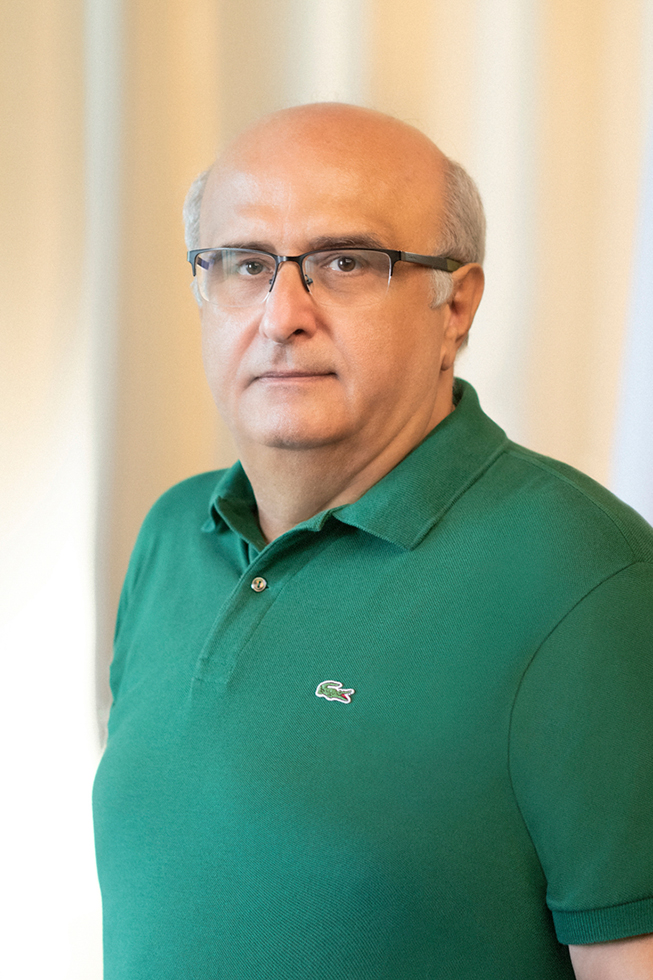
Greece lost an investment of 80-100 million euros of one of the best universities internationally and in the Middle East, the American University of Beirut. Cause; A ban on the creation of non-state non-profit universities in our country. Who won the investment? OUR Cypruswhose higher education is dynamically developing, relying on Greek students as well as university students.
The development of private Cypriot universities was based not only on Greek students, but also on university students. “I entered the Open University of Cyprus in 2018, when the position of the first dean was created by international invitation. My impressions are particularly positive as universities have the academic freedom to use their budget on a strategic basis, since the budget is administered by the council,” Sokratis Katsikas, a student at a Greek university who is now working in Norway, told K..
According to him, the positive aspects of Cypriot universities are the organization – “study is normal, without squats and vaccinated exams for “eternal”, while the cost of living is comparable to the cost of “immigration” new from Athens to a regional Greek university. Private Cypriot universities suffer in the field of research.
The landscape is expected to change with investment from the American University of Beirut (AUB) in Paphos. The institution, together with the university of the same name in Cairo and Bogazici in Istanbul (an evolution of the Robertian school), are part of the well-known academic trio in the Middle East. AUB’s decision is connected with the lazy reaction of the Greek state to attract foreign investment in higher education through the creation of non-state universities. “We thought about Greece, but the legislation in your country makes it very difficult to create a university like the one in Beirut,” says Lebanese Wassim El Hadj, executive director of AUB Mediterraneo, as the new institution is called. “.
Investments are of great economic and political importance. As the mayor of Paphos, Faydonas Faidonos, told K, “the choice of AUB is not at all connected with the fact that the United States considers higher education a “soft” pillar of its foreign policy and provides significant financial assistance to educational infrastructure projects in countries in which they have significant interests. Greece and Cyprus could play an important role in the South East Mediterranean through education, attracting students from the Balkans, North Africa and the Middle East to universities.”


Student from Athens vs student from Nicosia: big differences
“Think of two small children: one, with a lot of effort and reading and maybe a little luck, passes the pan-Greek examinations and goes through the law school of Athens. He will have to face a complex and interesting, lively and absurd environment, full of scientific challenges, as well as many features of space. After several examination periods, sometimes sit-ups and three-day vacations, somewhere towards the end of the fifth year, he will receive his degree with honor and glory and begin a long professional path as a lawyer,” notes Professor Maria Gavuneli in “K” at the Faculty of Law of the University of Athens.
Her first words arouse suspicion in the subsequent comparison. “Meanwhile, another kid, who may not have read as much and may not have been as lucky, is attending a Greek law program at a private university outside of Greece that he has just entered. In three years, with the same material, with the same books, sometimes with the same professors, he completed his studies and, when he first comes to enter the bar as an intern, he is already passing professional exams. Which one is the luckiest? And what does this little instructive, but absolutely true story tell us about the future of the country and its universities?”, the professor states meaningfully.
“Should we do it like in Cyprus?” Christos Buras, rector of the University of Patras, asks in a conversation with “K”. A university student brings up the fact that many Greeks are taken to Cypriot and Cypriot private universities to study in departments of their choice. “Most of them are young people who have spent time in Greece, but in a department they have not chosen. This shows that the academic map of Greece is in need of immediate discussion and restructuring. We produce graduates of faculties who are not needed by the country’s economy or turn out to be much more than its needs.
The need to restructure the academic map is of paramount importance, however, only the University of Patras has begun to merge its faculties. To the request of the leadership of the Ministry of Education to the universities to propose mergers, the universities responded with multi-page decisions in which they emphasize the role, work and importance of their departments. The leadership of the ministry did not start mergers, fearing a negative reaction.
Greek scientists also have a negative attitude towards the institution of private universities. Are they blind to international events? Already English-taught bachelor’s programs with training organized by public universities set themselves the task of attracting students according to financial criteria. Mr. Bouras, for his part, states that “the country should open up a debate without the demonization and clear operation of private universities, which will be addressed to Greeks who can afford tuition fees and foreigners for undergraduate programs in foreign languages. Fast steps need to be taken, including the revision of Article 16. Greek public universities and other organizations are allowed to have such faculties. It will be an economic respite for them and for the country’s economy.”
Numbers
ten universities, three public and seven private, operate in Cyprus
54 235 students studied in 2020-2021 23,812 were Cypriots, 8,812 third-country nationals and 21,611 EU citizens.
20 546 the students were Greek, 37.9% of all university students on the island.
from 8 to 30 thousand euros is the annual tuition fee for undergraduate programs. Arrives up to 25,000
for a master’s degree
80-100 million euros, investment by the American University of Beirut is being evaluated
Ashley Bailey is a talented author and journalist known for her writing on trending topics. Currently working at 247 news reel, she brings readers fresh perspectives on current issues. With her well-researched and thought-provoking articles, she captures the zeitgeist and stays ahead of the latest trends. Ashley’s writing is a must-read for anyone interested in staying up-to-date with the latest developments.